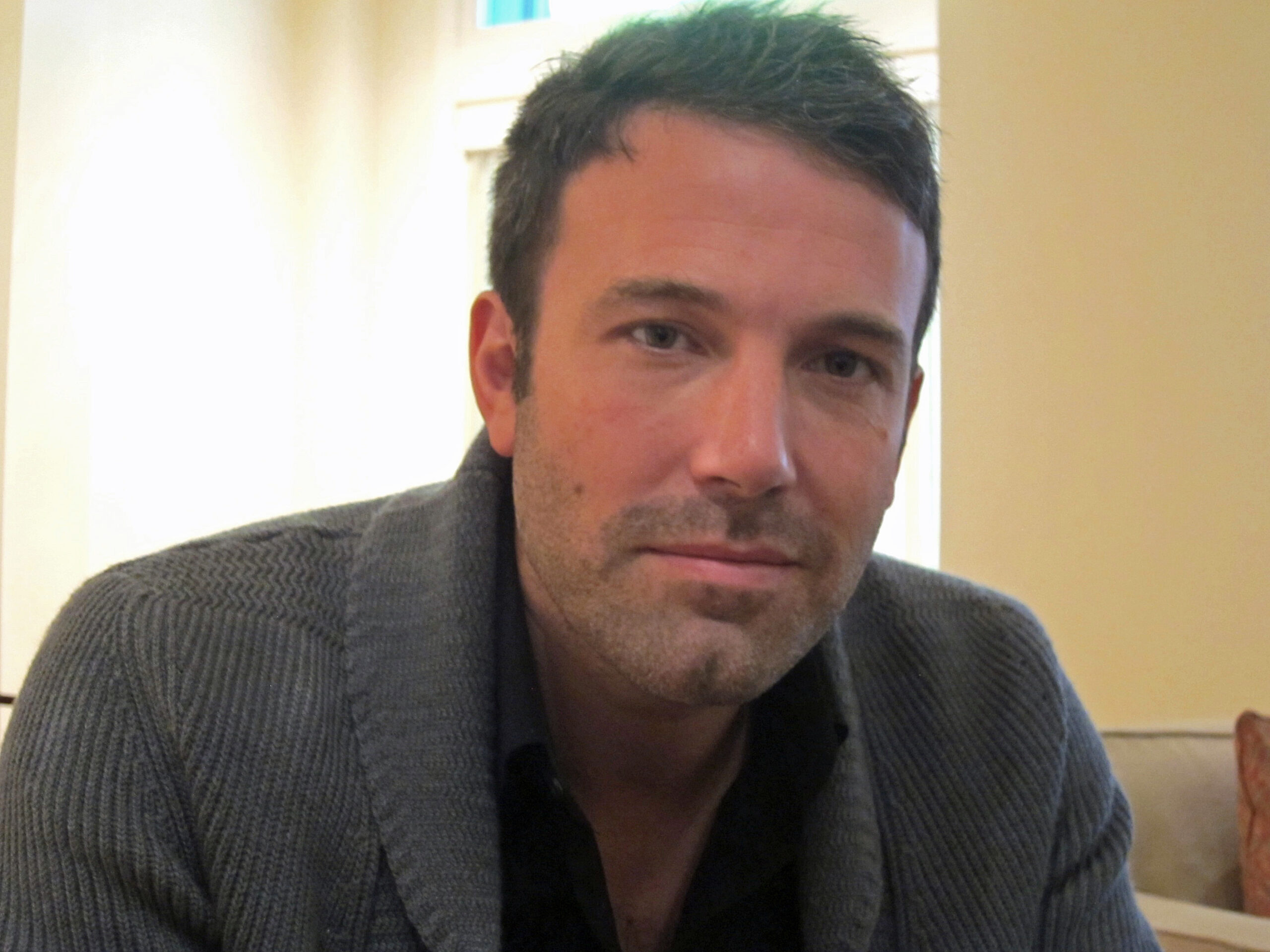There’s a tense scene in Ben Affleck‘s new thriller “Argo” that dramatizes how the magic of Hollywood is potent all over the world. The movie, based on a true story, involves a cockamamie scheme to rescue six American embassy workers during the 1979 Iran hostage crisis by passing them off as location scouts for a non-existent science-fiction epic.
“There’s this moment where they’re giving the storyboards for the movie to the Revolutionary Guards,” Affleck was telling me. “They’re very serious as they’re looking them over, and then my character tells them they can keep them — ‘It’s a gift.’ As we walk away you can see the guards kind of melt into just being kids, and loving the sci-fi flying saucer thing that’s going on there.
“Movies play all over the world and the most common action movies are the most successful.”
That’s the genius of the fake movie: It’s not a serious story about international conflict, it’s a flashy space picture. “I suppose those Iranians grew up on Star Wars, Indiana Jones and superheroes,” I said to Affleck.
“Yeah, exactly. And I think they’re still that way. When you look at Iran, it views America more favorably than any other Middle Eastern country. Part of that is culture, clothes, music and movies. So they’re getting bootlegged versions of “The Avengers” (2012), and admiring Robert Downey Jr. and the humor and sensibility and — hopefully they’ll bootleg my movie. The movies and our culture are our biggest exports now.”
“Argo” is one of most taut and well-constructed thrillers of recent years. It doesn’t depend on gun battles and explosions but on a daring, ingenious plan to create a cover story for six Americans that no one knows are hiding inside the Canadian Embassy in Tehran.
“The beginning of the movie especially was informed by, or borrowed from, ‘All the President’s Men,'” he said, “particularly the CIA stuff. We wanted to have less about the sexy touch-screens we know from today’s movies, and more like the old CIA, with cigarette butts everywhere and paper stacked up.”
We were having tea at my house. Affleck was visiting Chicago to promote his third film as a director, which opens Friday, Oct. 12. After good reviews for his “Gone Baby Gone” (2007) and “The Town” (2010), this one shows a mastery that reminds me of films directed by George Clooney, another major star who transitioned comfortably into the director’s chair.
“Clooney was originally attached to this project,” he said, “and I went to him and said, ‘I gotta have this,’ and he let me.”
It’s another step in the evolution of Affleck’s career, which after much work as a young actor famously caught fire when he and friend Matt Damon won the Academy Award for the screenplay of their “Good Will Hunting” (1997). He moved to top-line billing in such thrillers as “Armageddon” (1998), and “Pearl Harbor” (2001),” which received dicey reviews — but nothing compared to those for “Gigli” (2003), which received such a savage critical pounding that it scored 7% on the Tomatometer (in spite of the fact that I liked it).
Affleck pulled his career out of that nosedive with a series of fine performances and his three films as director, which have won a lot of respect.
In real life, the idea of a fake movie was devised by makeup man John Chambers, played by John Goodman, and a producer named Lester Siegel, played by Alan Arkin.
“They had to come up with something really outrageous,” he said. “Otherwise why on earth would you be in Iran during the revolution? It’s kinda amazing but John Chambers, who won an Oscar for ‘Planet of the Apes’ and helped them fabricate the production — an ad in Variety, everything. The whole caper was top secret for 18 years.
“One of the nice things with the Goodman and Arkin characters is that we can cut back to Hollywood and have some comedy and it doesn’t disrupt the story because they’re comic actors who can deliver the most outrageous dialog and still seem completely real.”
And then it’s back to Tehran, where the meticulously written and directed screenplay tightens the screws in the tradition of classic thrillers.
“With the earlier films,” Affleck said, “I was able to have the benefit of constructing a scene, watching it, cutting it, and seeing it play in front of an audience and so I learned some lessons. Suspense is sort of like math. Building suspenseful things, it seems to me, is about pulling out just the right amount of bricks and feeling like it could fall at any point but it doesn’t fall.”
Speaking as a critic who praised “Gigli, ” I said, I feel fair in observing that your career went into a slump around that time. Some people believe that helped inspire you to play George Reeves in the biopic “Hollywoodland,” which was seen as a comeback.
“People were looking to take shots at ‘Gigli,'” he said “It was more the relationship I had with Jennifer [Lopez] and the degree to which it was publicized in tabloids that turned people off. Playing to the media wasn’t something that we were looking for, but it seemed as though we were.”
Now you seem poised for more success, I said.
“I’m involved in trying to kinda figure it out. One of the things in the lessons I’ve learned about acting is to be really judicious, extremely careful, about the roles I take and what I do, and be even more so with directing because it’s like two years of your time. Right now we’re developing a script about Whitey Bulger, the legendary Boston gangster, that I would direct. Matt would act as Whitey and my brother Casey would play Billy, his brother.”
Another possibility: Stephen King’s adaptation of his own mammoth sci-fi story “The Stand,” which could run as long as “Lord of the Rings.” Make no little plans.












